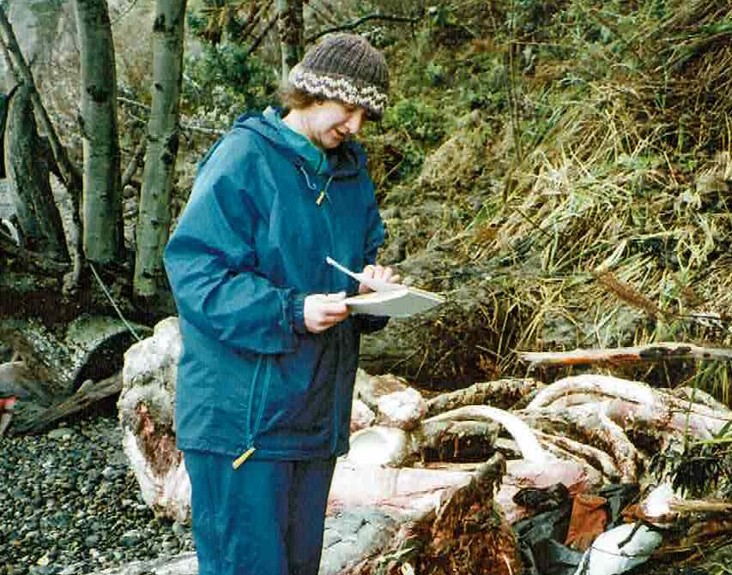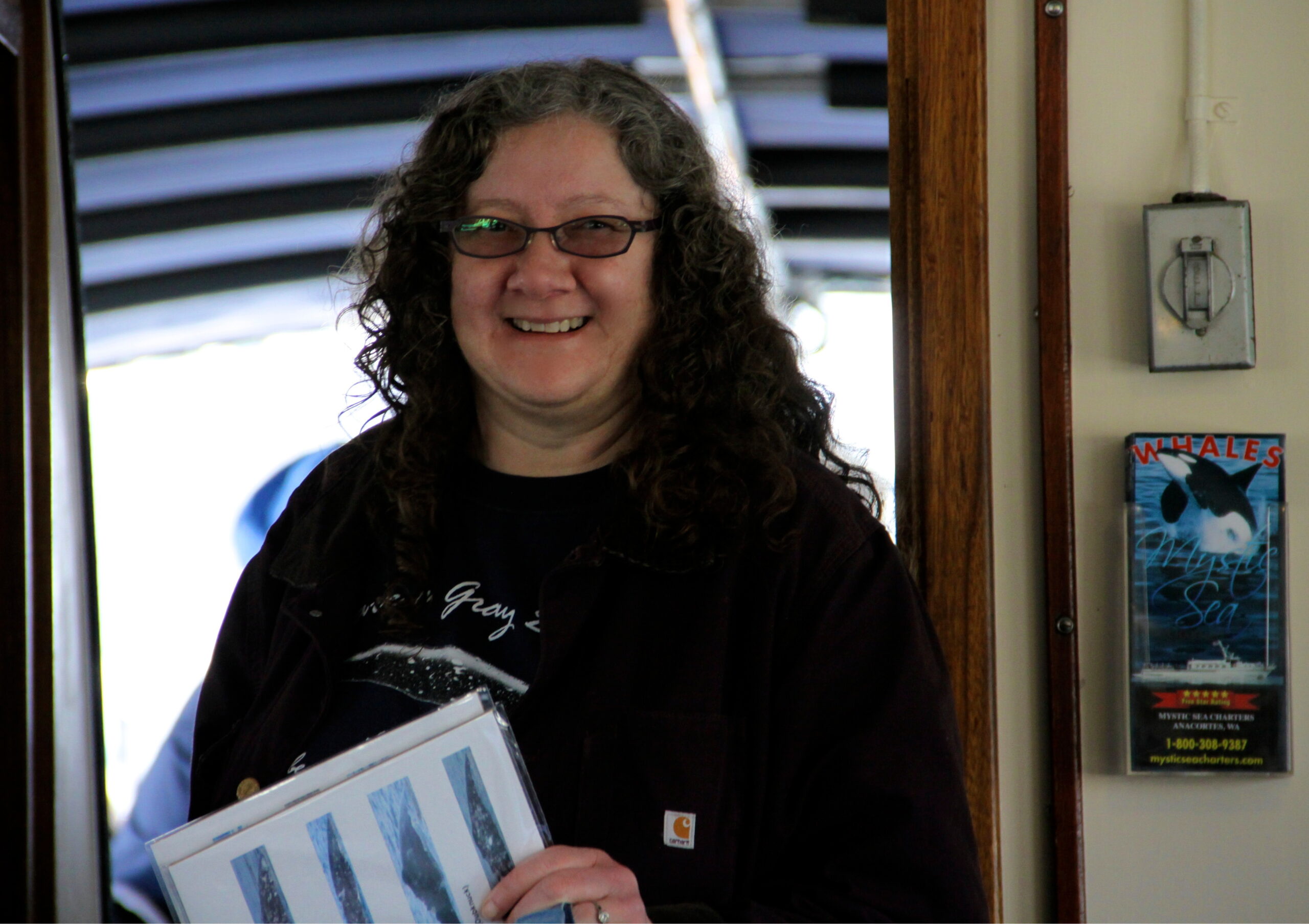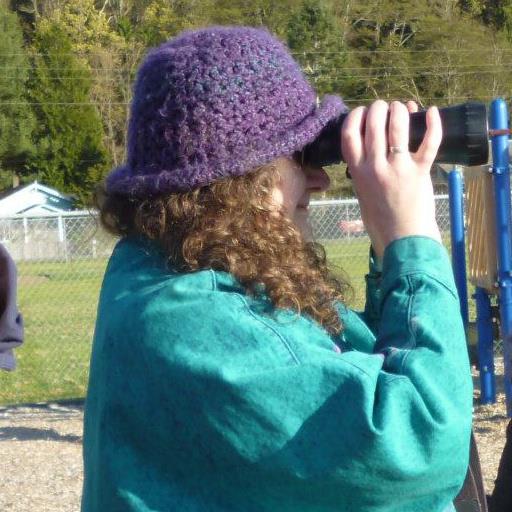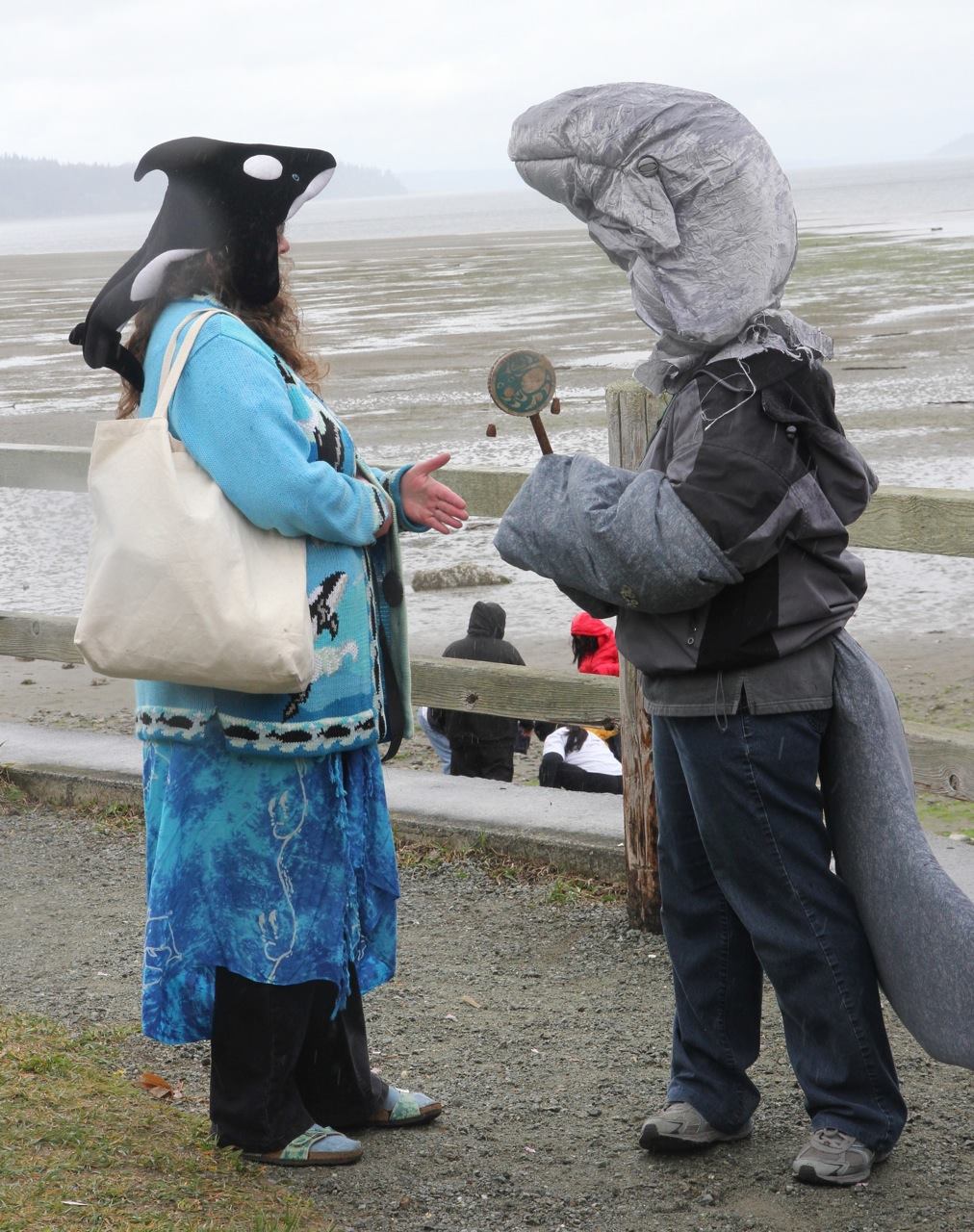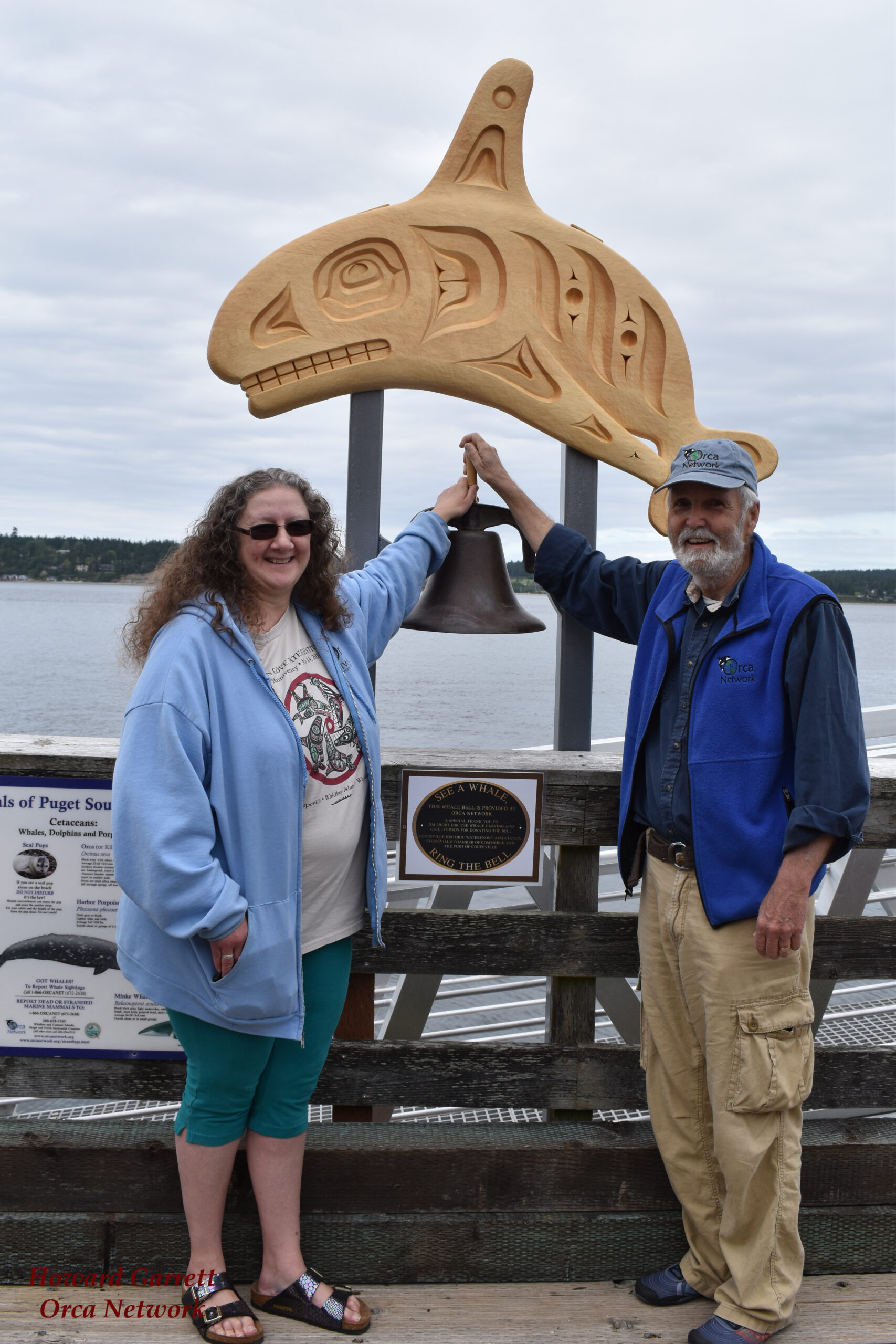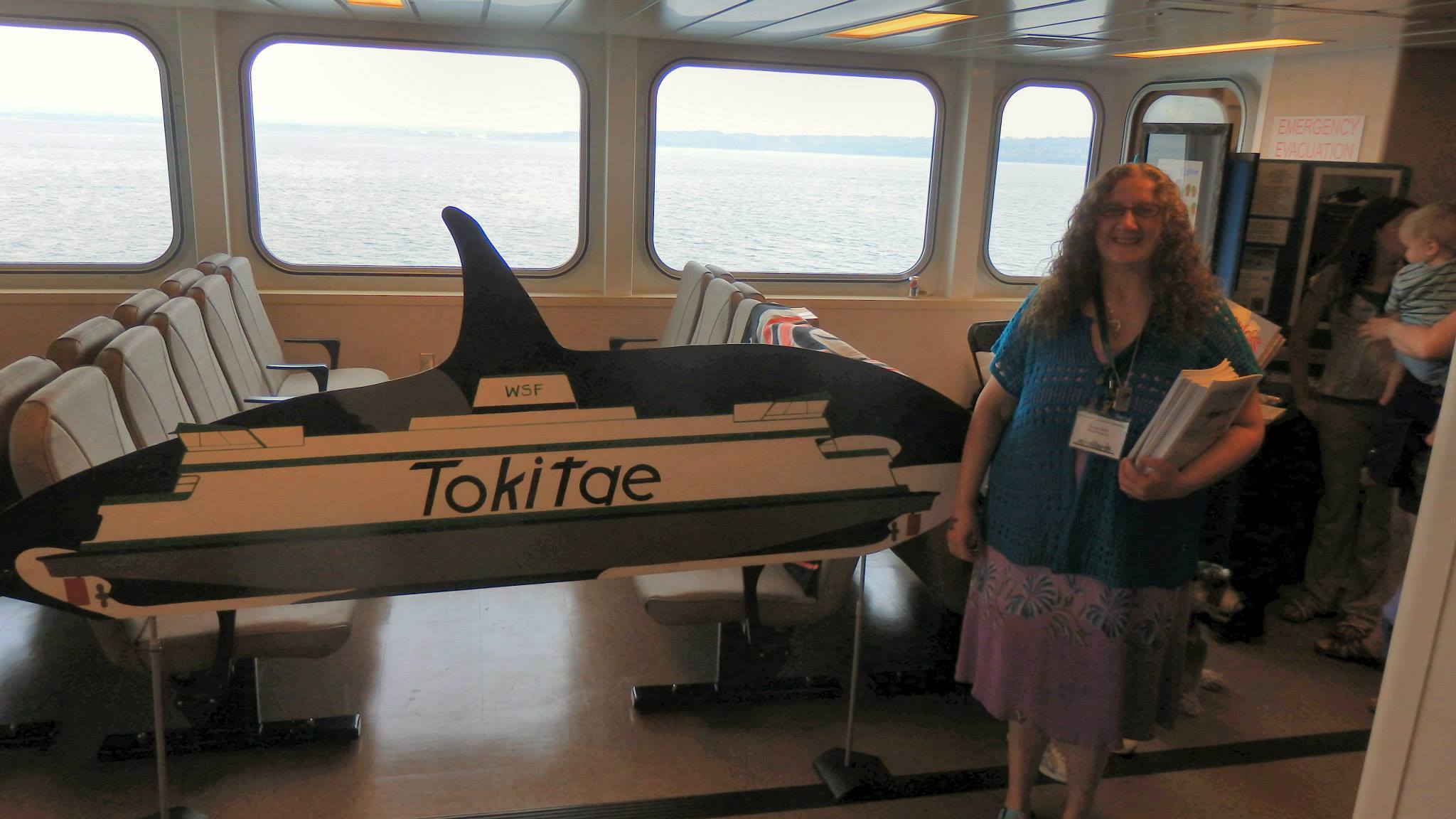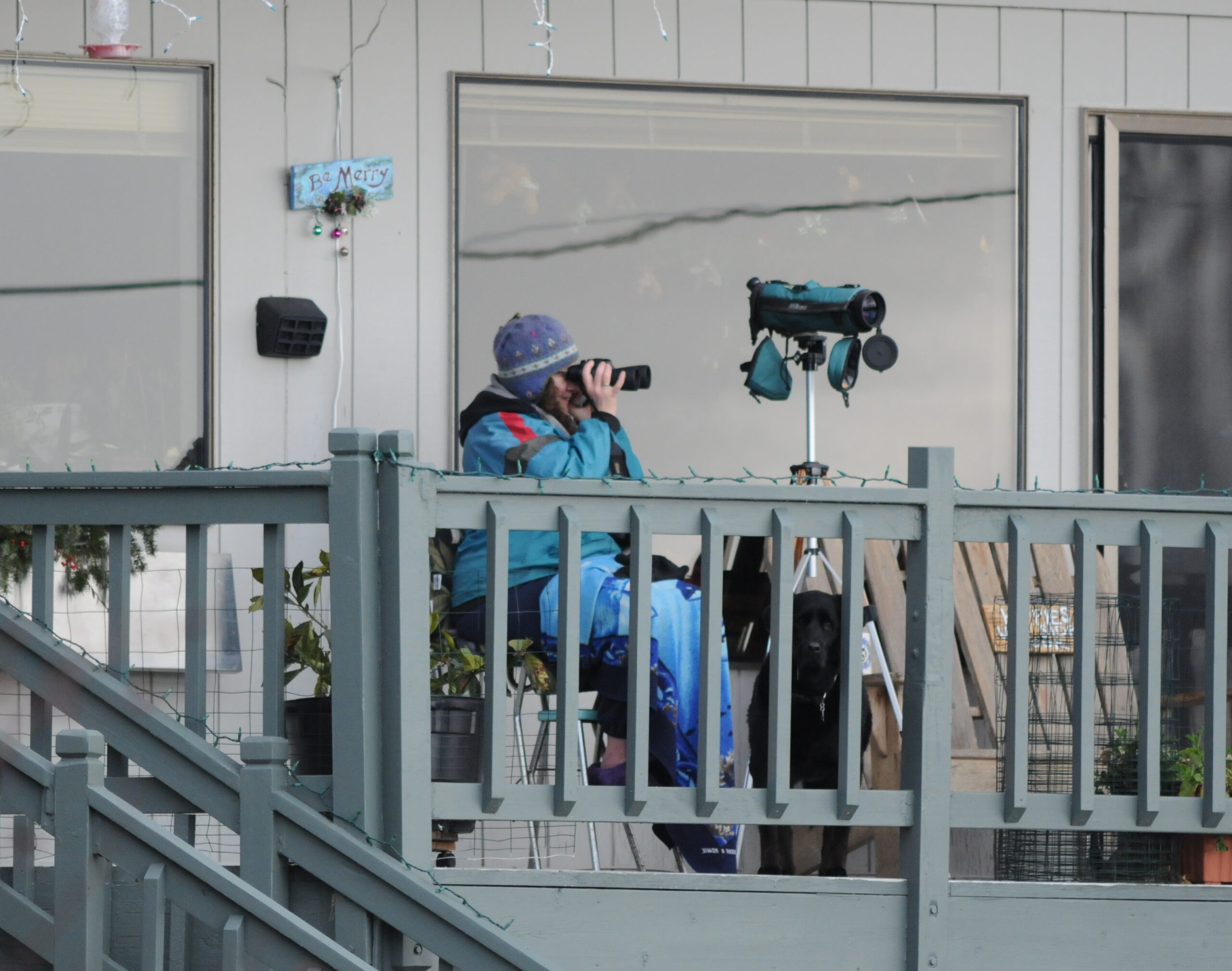Susan Berta has dedicated her life to caring for one of the most iconic creatures of the Pacific Northwest: the orca. Susan co-founded what started as a small, community-driven effort to spot whales and has grown into the regionwide and multifaceted Orca Network. With the support of her team, she now connects thousands of people to orca sighting opportunities, advocates for safer whale habitats, and fosters greater awareness of the issues faced by whales in the Salish Sea.
Susan’s fascination with orcas began in the 1990s, soon after her move from Wyoming to Washington and graduation from the Evergreen State College with a degree unrelated to marine biology. With a previously unrealized passion for the environment, Susan found herself working for the Beach Watchers—later known as the Sound Water Stewards—as a community educator on Whidbey Island.
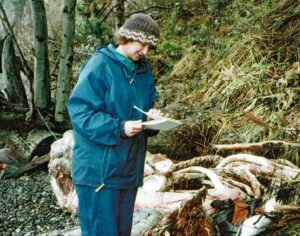
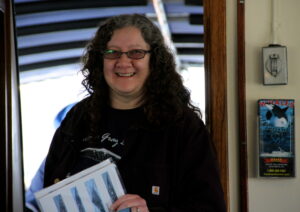
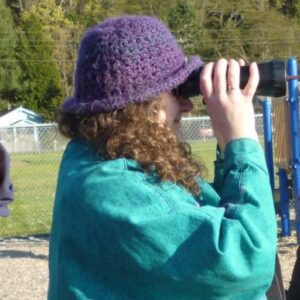
Scientific and Emotional Connections
Over time, she started to admire the orcas that passed the Beach Watchers office near Admiralty Head Lighthouse. Before she had a computer or email, she started calling the volunteers interested in orcas when she knew the orcas were headed their way. She met Howard Garrett and his brother, Ken Balcomb, scientist and founder of the Center for Whale Research, who wanted the orca sightings for their research. They put her in touch with Seattle researchers so they would know when the orcas were heading south.
Susan’s consistent alerts to Ken about her orca sightings helped establish new research pathways about the undersea creatures. Susan noted that while scientists tend to view orcas from a biological standpoint, people connect with them on an emotional level. “What’s magical about orcas,” she said, “is that they bridge these two perspectives.”
For Susan, one orca that exemplifies this bridge is J35, also known as Tahlequah. In 2018, Tahlequah famously carried her deceased calf with her for 17 days. In January 2025, she is again carrying another deceased calf. “Even scientists have to say, ‘So why is Tahlequah carrying her dead calf on her four weeks after this calf dies? Is that grief? Is she trying to tell us something? Why did she carry it past Point Robinson in front of a crowd of people just to turn around and go back and carry it past them again?” Susan says.
Despite moments of joy and levity, caring deeply for an endangered species can be tiring. In addition to the loss of Tahlequah’s second calf this month, one recent emotional challenge for Susan was the 2023 death of Tokitae, a Southern Resident killer whale who was captured from the wild in 1970 and put on display in a small tank at the Miami Seaquarium in Florida. After decades of advocacy, Tokitae was to be returned to the Salish Sea last year, but tragically died in captivity just months before she could be returned.
Tokitae’s death served as a touchstone for many who care about the Southern Residents. “There was just something so special about her and how deeply she touched so many people around the world,” Susan said. “It just made me realize how strong Toki’s spirit is and how alive she still is in all of us.”

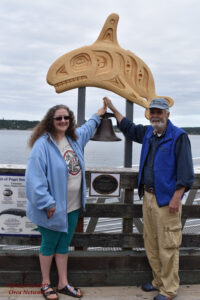
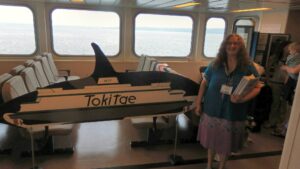
Orca Advocacy and Education
Spurred by these personal connections with whales, Susan and Howard’s phone tree led to the creation of Orca Network, which has grown from a grassroots effort into a leading organization for orca sightings, research, and advocacy.
For 15 years, the network operated without a physical space to share resources and knowledge with the community, but in 2014, Orca Network opened their first in-person location, the Langley Whale Center. At this museum and educational hub, Orca Network shares their passion for whales through exhibits, educational programs, and community events like the annual Ways of Whales workshop and more.
Langley was a prime location for the Whale Center because gray whales (known colloquially as Sounders) will get very close to land and feed on ghost shrimp that congregate “like a buffet” near shore. Sightings are almost daily January through May. Susan is particularly grateful to the town of Langley for embracing the Langley Whale Center and Orca Network.
In addition to their work at the museum, Orca Network brings whale science into the community with workshops, classroom visits, and resources that empower individuals to advocate for orcas and their habitat. Lately, much of their public education has focused on providing information about regulations that protect whales, such as new rules for boating near orcas.
A key part of Orca Network’s work is advocating for orcas at the government level. By providing information about legislation, helping people contact their representatives, or submitting comments on policies that affect the lives of orcas (like recent salmon net pen decisions), the network and its supporters can help create lasting change.
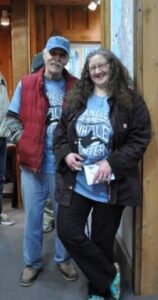
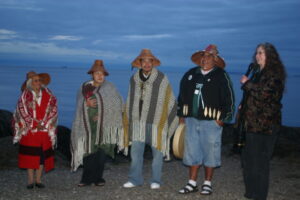
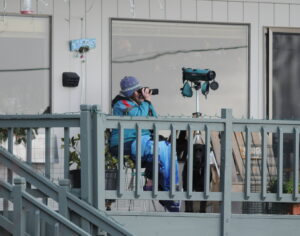
Respect for Differing Perspectives
Although Susan’s career has placed her at the forefront of marine conservation, she is keenly aware of the unique challenges women face in leadership roles. In response, Susan is committed to ensuring that as Orca Network grows, diverse perspectives are actively sought out, respected, and valued.
For example, by deepening its partnership with indigenous Tribes, Orca Network has gained invaluable insights into traditional knowledge about the region’s ecosystems. These relationships have reshaped the organization’s approach to conservation, emphasizing a deeper respect for the Earth’s sacredness and strengthening their efforts to protect orcas and their habitat.
“I think that [learning from Tribal leaders] can help us and help others to have the inspiration and the grace to move forward and hold that sacredness for the Earth and to keep on keeping on, because it’s hard,” said Susan.
If there’s one piece of advice Susan would give to young changemakers, it’s to take good care of themselves. Because, as she reminds us, “It’s a long haul. And the world needs us. The world needs people who care.” In Susan’s case, that care has shaped a community that’s better connected to orcas—and to each other—on the waterfront and beyond.
If you liked this story, you might enjoy other stories about Women on Washington’s Working Waterfronts. Hear from Jennie Buswell, terminal manager for one of Washington, or Ava Karr, a pilot who lands seaplanes across the Salish Sea


